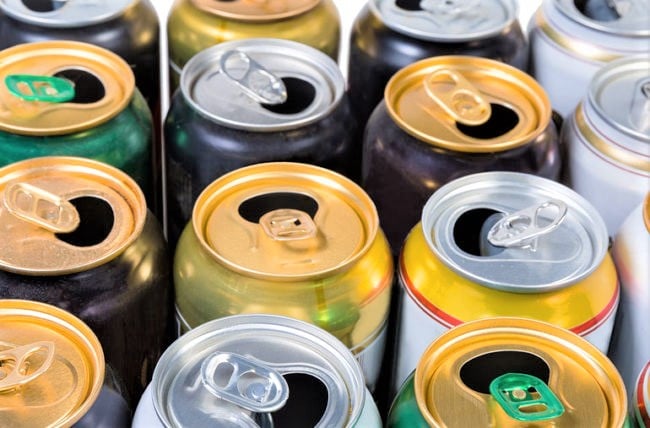Sodiq Ojuroungbe
Medical experts have raised concerns over the growing consumption of energy drinks among children, warning that the habit could lead to serious nutritional imbalances, including micronutrient deficiency, obesity, and poor eating habits.
According to paediatric specialists, many children who frequently consume energy drinks are gradually replacing nutrient-rich foods with the sugary, stimulant-laden beverages, putting them at risk of both overnutrition and undernutrition.
Speaking exclusively to PUNCH Healthwise, the physicians noted that energy drinks are high in sugar and calories, making them a major contributor to childhood obesity when consumed regularly.
They stressed that unlike whole foods that provide proteins, fibre, and essential nutrients, these drinks provide “empty calories” that quickly convert to fat when not used up by the body.
The experts warned that children who rely on energy drinks risk developing poor dietary patterns that may persist into adulthood, making it difficult to return to healthy eating habits.
They urged parents to discourage their children from consuming energy drinks and instead encourage balanced diets that include fruits, vegetables, grains, and proteins.
A Consultant Paediatrician, Dr. Bello Surajudeen, said energy drinks have no nutritional benefit but are often taken as substitutes for food, leading to imbalanced nutrition.
He explained that children who frequently take such drinks are at risk of what he described as “hidden hunger,” a condition in which a child may look healthy outwardly but suffers a deficiency of essential vitamins and minerals.
“The danger of drinking energy drinks is not just about the caffeine; it’s that many children become so used to them that they no longer eat the nutritious foods they should be taking.
“Over time, they can suffer from what we call hidden hunger — where they look physically fine but lack essential micronutrients like vitamins and minerals that only come from real food,” he said.
Surajudeen noted that regular consumption of energy drinks may cause children to develop poor eating habits.
He added that dependence on such drinks can make them ignore normal meals and result in undernutrition or obesity.
The physician further said energy drinks contain high amounts of sugar and calories but lack vital nutrients needed for growth and development.
He warned that excessive sugar intake from energy drinks can contribute to weight gain and obesity among children, especially when combined with sedentary lifestyles.
“Nutrition-wise, some children, when they become so used to it, will not eat nutritious food. They will become dependent on those drinks and may end up with either overnutrition or undernutrition,” he said.
Also speaking, a Paediatric Cardiologist, Dr. Samuel Owoyemi, also expressed concern about the trend, describing it as “nutritional deception”.
He said the temporary boost of energy children feel after taking energy drinks hides the fact that such products are nutritionally empty and could cause long-term harm.
He said, “These drinks give a false sense of energy but starve the body of what it truly needs.
“Regular consumption stresses the developing body, contributes to weight gain, and denies children the nutrients required for proper growth.”
Owoyemi stressed that children’s bodies need real nutrition to grow properly, not stimulants or sugar-filled beverages.
“Children need food that nourishes their growing bodies and brains. Energy drinks offer none of that; they contain only sugar, caffeine, and short-term stimulation. The long-term cost to their nutrition and health can be enormous,” he said.
Copyright PUNCH
All rights reserved. This material, and other digital content on this website, may not be reproduced, published, broadcast, rewritten, or redistributed in whole or in part without prior express written permission from PUNCH.
Contact: [email protected]

